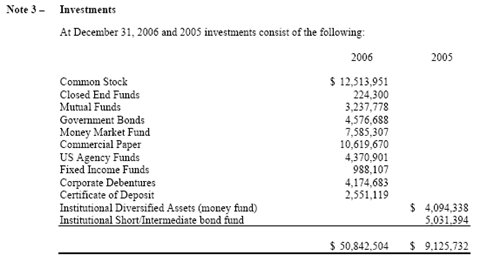Mozilla banks Google bucks; Builds a portfolio

Mozilla's revenue, which includes Mozilla's foundation and corporation, came in at $66.8 million in 2006. That's up from $52.9 million in 2005.
Mitchell Baker, Chief Lizard Wrangler at Mozilla, wrote in a blog:
"As in 2005 the vast majority of this revenue is associated with the search functionality in Mozilla Firefox, and the majority of that is from Google. The Firefox user base and search revenue have both increased from 2005. Search revenue increased at a lesser rate than Firefox usage growth as the rate of payment declines with volume. Other revenue sources were the Mozilla Store, public support and interest and other income on our assets."
It doesn't take a big leap to conclude Google is bankrolling Mozilla. In a footnote (see PDF), Mozilla notes the Google risk. Mozilla gets 85 percent of its revenue from Google. The latest Mozilla-Google contract expires in November 2008.
Mozilla's financial statement really puts the browser battle into perspective. It's not Firefox vs. IE as much as it is Google vs. Microsoft. Given Mozilla's reliance on Google I wonder if the search giant would ever bring the project into the fold somehow. Would it make sense for Google to acquire Mozilla?
In any case, Mozilla's expenses in 2006 were just shy of $20 million at $19.77 million. The bulk of these expenses were for 90 people working full or part-time on Mozilla. Employees were 70 percent of expenses.
Baker details the hiring plan:
"Of the people Mozilla funds, the largest single group works on the Mozilla "platform." This includes all the underlying technology that individuals don't manipulate directly - networking, layout, understanding content from websites, security, and so on. The work of the platform group supports all Mozilla products and most Mozilla projects. The next largest group is Quality Assurance, which provides formal verification for Firefox and Thunderbird, and informal assistance to other Mozilla projects. Other large groups are the Firefox application group, marketing and outreach, and IT or technical infrastructure. We have small but potent sets of people working on build and release, web tools, our websites (including add-ons), and other functions."
Mozilla also spent some dough on its technical infrastructure, including a data center in Europe.
Baker also highlights Mozilla as an open source project noting all the folks (16,000) that reported bugs, the 1,000 people that contributed code to Firefox 2 and the 65,000 sites that spread Firefox around via referalls.
The big takeaway: Mozilla is a big business and those browser search boxes are valuable. As Baker notes, Mozilla has gone beyond sustainability. Among some of the notable items in Mozilla's 2006 financial statements:
- Mozilla held $50.8 million in investments, including $12.5 million in common stock, $10.6 million in commercial paper, $7.5 million in money market funds, $4.57 million in government bonds and other assets. At first glance, Mozilla's portfolio is nicely diversified. Here's the chart.
- Mozilla's cash on hand was $13.15 million, down from $36.4 million. The difference? Mozilla took its cash and invested it.
Mozilla's software spending was $308,871 in 2006, up from $30,120 a year earlier. Mozilla spent $1.57 million on computer gear, up from $884,299 in 2005.
